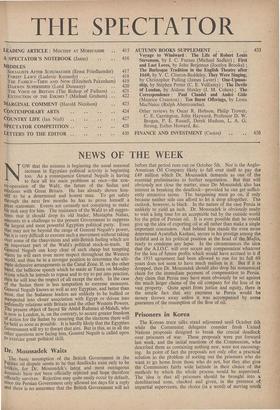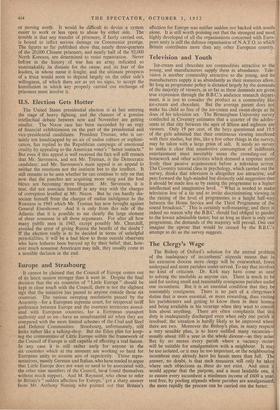Prisoners in Korea
The Korean truce talks stand adjourned until October 6th while the Communist delegates consider fresh United Nations proposals designed to break the crucial deadlock over prisoners of war. These proposals were put forward last week, and the initial reactions of the • Communists, who described them as containing nothing new, were not encourag- ing. In point of fact the proposals not only offer a practical solution to the problem of sorting out the prisoners who do want to go home from those who do not, but they also give the Communists fairly wide latitude in their choice of the methods by which the whole process would be supervised. The idea is that all prisoners should be brought into a demilitarised zone, checked and given, in the presence of impartial supervisors, the choice (in a word) of moving south or moving north. It would be difficult to devise a system easier to work or less open to abuse by either side. The trouble is that any transfer of prisoners, if fairly carried out, is bound to inflict serious damage on Communist prestige. The figures so far published show that nearly three-quarters of the 20,000 Chinese prisoners, and nearly half of the 92,000 North Koreans, are determined to resist repatriation. Never before in the history of war has an army indicated so unmistakably its distaste for the cause, and its fear of the leaders, in whose name it fought; and the ultimate prospects of a truce would seem to depend largely on the other side's willingness, of which there are as yet no signs, to accept the humiliation in which any properly carried out exchange of prisoners must involve it.



















































 Previous page
Previous page